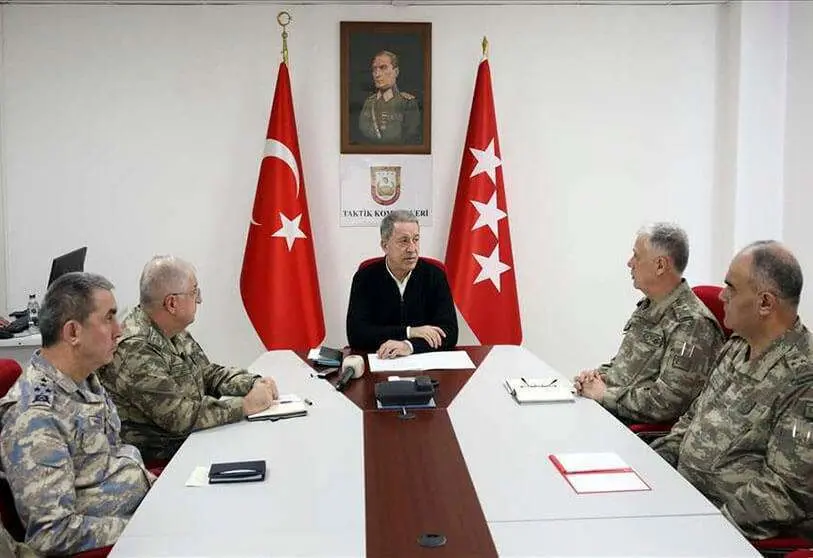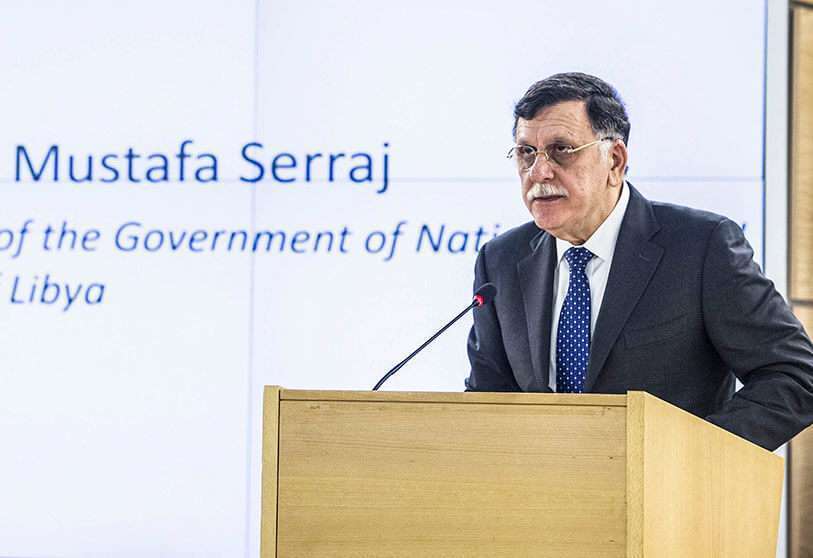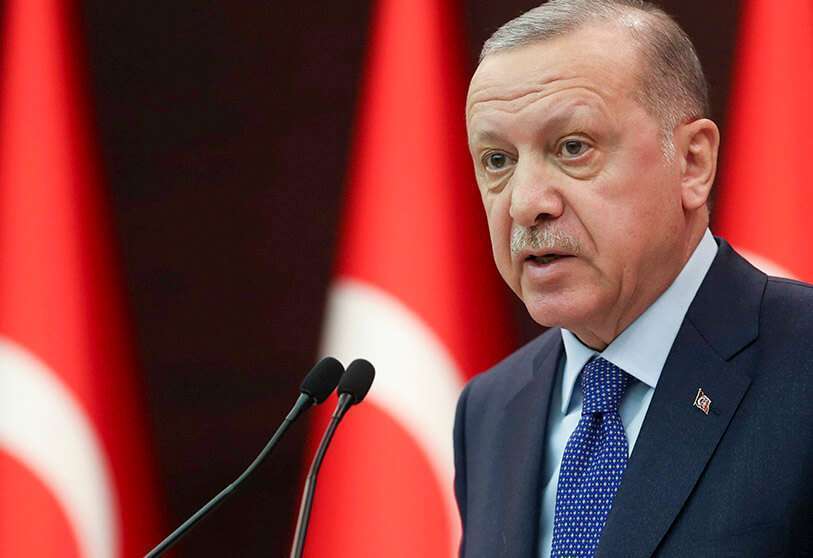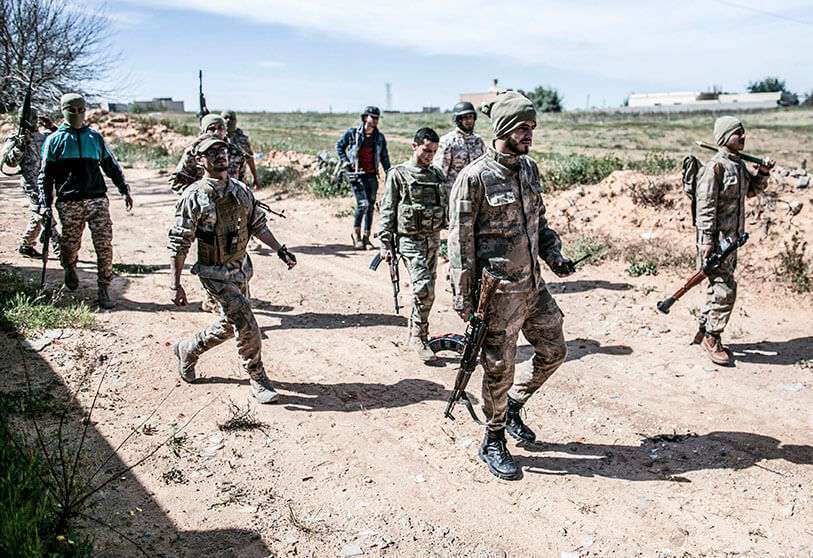Turkey and the Libyan National Accord Government strengthen their positions

Turkey, Libya and Malta held a trilateral meeting on Monday in the Turkish administrative capital of Ankara to address issues of cooperation, security and stability in the eastern Mediterranean. The Eurasian country solidifies its position of military support to the National Accord Government (GNA) of Prime Minister Fayez Sarraj in its fight against the Libyan National Army (LNA) led by Marshal Khalifa Haftar, and the rope is still being pulled in a Libyan civil war that has been going on between the two sides since 2014 with a real failed state as it is now the North African country with internal struggles between sides that dispute power after the overthrow and death of the dictator Muammar El Gaddafi in 2011.
"We have agreed that cooperation between our countries will continue in the coming days to achieve peace in the region," said Turkish Defence Minister Hulusi Akar in a joint press release. Akar held the meeting with Libyan ANG Interior Minister Fathi Bashagha and Maltese Interior, Law Enforcement and National Security Minister Byron Camilleri.
The ministerial leaders discussed the steps to be taken to achieve stability in the Mediterranean, according to Fathi Bashagha in the official note released; he also stressed that more efforts are needed to support the stability of his country and accused Jalifa Haftar, leader of the LNA, and the eastern executive of Tobruk which he represents of damaging regional security.

Meanwhile, Byron Camilleri highlighted the fact that the Mediterranean is one of the deadliest migration routes in the world and called for a solution to the problems in the area that force people to flee. "Turkey, in this regard, reported that it will offer concrete and important support," he said.
Turkey continues to support the GNA, which has been internationally recognized by the United Nations since 2016 and is based in the capital of Tripoli, which also has the support of Qatar (Turkey's international ally) and Italy. Recep Tayyip Erdogan, President of Turkey, and Prime Minister Fayez Sarraj sealed an agreement in November 2019 to ensure Ottoman military support and to distribute economic zones in the Mediterranean arc for gas and oil exploration. The Eurasian nation has also been singled out for sending to Libya mercenaries in the pay of various nationalities from Syria and attached to former groups linked to terrorist organizations such as Daesh and Al-Qaeda.

Fathi Bashagha himself also welcomed the "positive stance of the brother state of Qatar with the GNA", after meeting with the deputy prime minister and minister of state for defence affairs of the state of Qatar, Khalid bin Muhammad al-Attiyah, and the deputy secretary of the Libyan Ministry of Defence, Salah al-Namroush, on Monday at the Turkish Ministry of Defence headquarters in Ankara. For his part, the Qatari minister said that "the ANG won its last victories thanks to the determination of its leaders.
These war victories referred to by the Arab diplomat are the last ones achieved by Fayez Sarraj's forces thanks to the military support of Turkey, and with the invaluable financial contribution of the Gulf monarchy, as several analysts have pointed out. On 4 April 2019, the LNA launched an operation to take over the last major stronghold of the Sarraj government in Tripoli, but thanks to Turkish intervention, it has regained ground by seizing areas around the Tripolitan capital from the Haftar armies, important enclaves such as Sabratha, Sorman and even the Al-Watiya airbase.
Turkey has been developing a belligerent and very active activity in the civil wars in Libya and Syria for months in order to increase its geostrategic influence and to obtain economic benefits thanks to the energy resources present in this area.
Ankara is clear about its firm position. Thus, during a recent visit to Libya, the Turkish Minister of Defence already pointed out that "Turkey will stay in Libya forever", that "it will not withdraw from it", and that "there is no solution in the region without Turkey".
Hulusi Akar also spoke along the same lines during a visit to the warship TCG Giresun off the coast of Libya: "By land and by sea we are doing our best. We have duties and we have a shared history in the region that spans 500 years. Our grandparents retired from the region, but we will do our best for justice and within the framework of international law. We will stay here forever with our Libyan brothers. He also referred to Turkey's ongoing activities in the Eastern Mediterranean, saying that "Turkish naval forces in the Mediterranean, Aegean and Black Sea are performing all their tasks in the best way".
The Libyan civil war has become a stage for power games involving several foreign powers defending their own interests on the ground in the North African country. Fayez Sarraj's ANG is supported by Turkey, Qatar and Italy, while Khalifa Haftar's ANG is supported by Saudi Arabia, the United Arab Emirates, Egypt (the Qatari state's major regional rivals), Russia and France. All this is done by sending paid soldiers to both sides, such as those assigned by the Turkish nation or those of the private military company of the Wagner Group, which works for the Russian Kremlin.

Now all eyes are on the nerve centres of Sirte and Al-Jufra, important locations that could be the scene of a bloody confrontation between the opposing factions in Libya. In this line, Salim Qashout, military spokesman of the forces of the GNA, indicated that they are coordinated with Turkey already to attack these two cities. Sirte, a coastal city located in the north of Libya that means an important access to the central and eastern oil area of the North African country, and Al-Jufra are key because neighboring Egypt has marked them as untouchable red lines if they do not want to trigger an armed clash of greater dimensions. Abdel Fattah al-Sisi, the Egyptian president, has already warned that his powerful army would come into action if the ANG tries to take these two enclaves and that, moreover, he would have international legitimacy to do so.
In fact, according to the state news agency MENA, the Cairo Parliament authorized, in a closed session, the "sending of troops of the Egyptian Armed Forces on combat missions outside the borders of the State to defend Egyptian national security in the western strategic axis", that is, in the border with Libya. The troops would act against "armed criminal militias and foreign terrorist elements", as approved.








